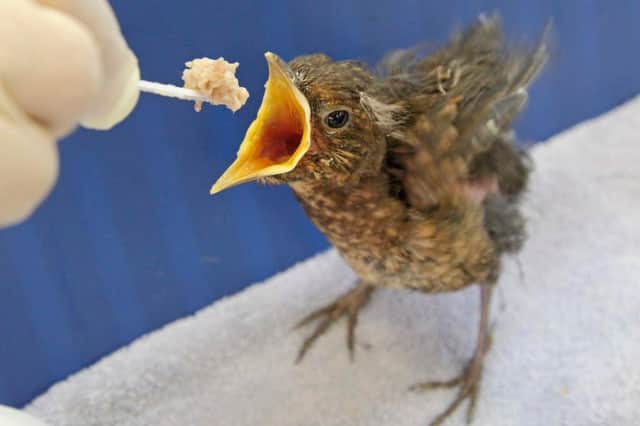RSPCA braced for flood of sick and injured baby birds in Nottinghamshire


The majority of calls to the RSPCA from concerned members of the public came in during the peak months of May, June and July.
Around one third of all the calls last year related to orphaned birds and another were about sick and injured birds.
Advertisement
Hide AdAdvertisement
Hide AdThe majority were about fledglings (older baby birds that are starting to fly), which the RSPCA advises can generally be left to be cared for by their parents. The charity also received 1,413 calls about nestlings - the very young baby birds - who will not survive out of the nest. Nestlings are highly vulnerable and more likely to need help.
RSPCA’s scientific officer Evie Button said: “Our wildlife centres are now on high alert as the baby bird season kicks off.
"So many orphaned, injured or sick young birds were brought into our four specialist centres last year. That’s a lot of round-the-clock hand-feeding, monitoring and rehabilitation of all types of young birds, from cygnets, sparrows and swallows to guillemots, goshawks and gulls.
“It’s wonderful that people want to do the best for our wildlife, but sometimes it’s difficult to know when to intervene and when to hold back.
Advertisement
Hide AdAdvertisement
Hide Ad" It is really important to ensure it is only those that really need help that are brought in, and in most cases, the best thing you can do for them is to help them stay in the wild using methods like re-nesting.
“If in doubt, our new, downloadable guides - one for fledglings and one for nestlings - are full of advice and can help to identify whether the young bird is a fledgling - which unless sick or injured, is likely to survive outside the nest without human intervention - or a younger, more vulnerable nestling, which will probably need extra help.”
Unlike fledglings, if a nestling is spotted outside their nest, they need assistance.
The RSPCA’s new downloadable guidance provides options on what to do depending on the circumstances. Actions may include creating a manmade nest, taking the nestling to a vet or local rescue centre, or calling the RSPCA.
Advertisement
Hide AdAdvertisement
Hide AdThe RSPCA also has specific information on their website for some species which may need different types of help, such as gull chicks, bird of prey chicks and ducklings, goslings and cygnets.
Visit www.rspca.org.uk.